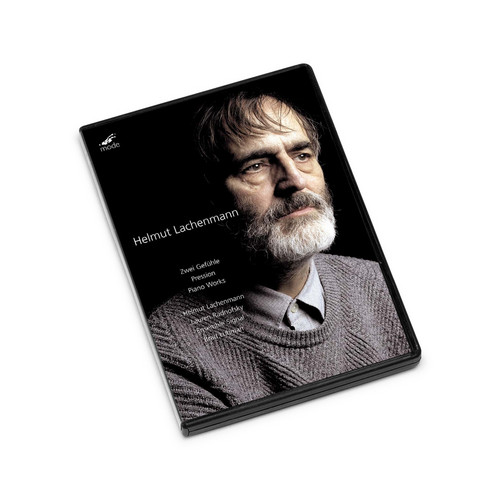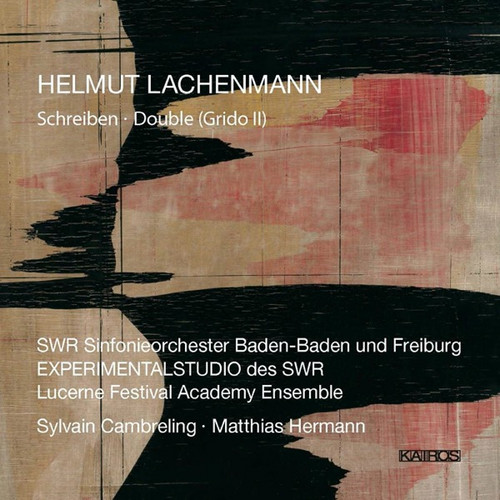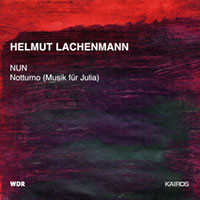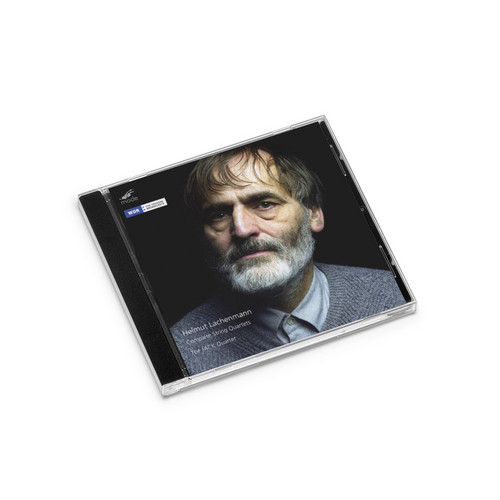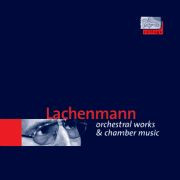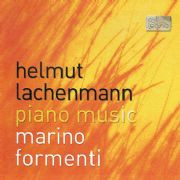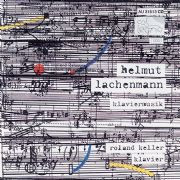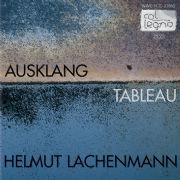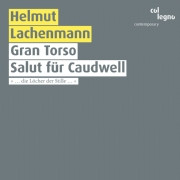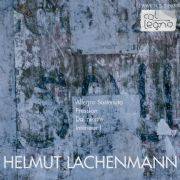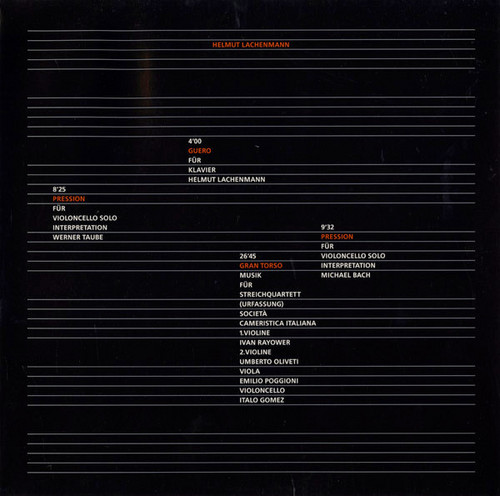Helmut Lachenmann
Zwei Gefühle and Solo Works
Violin and viola players whisper over their instruments. A guitarist waits with the closest attention for the moment to make a gesture we might easily have missed. The tuba player rises to go over to the open piano, there to send sounds echoing into its interior. Two cellists, bowing with heavy pressure down near the tailpiece, produce an urgent rasping. From the timpanist comes the sudden fortissimo that seems to shock the music to a standstill… Renowned German composer Helmut Lachenmann’s mus…
Schreiben
** In process of stocking ** If music’s relationship with reality is to be more than just a theoretical presumption, it cannot be limited merely to work titles, comments, dedications or quotations, but must also extend to permeate all musical dimensions: material, structure, form and content. And from the very beginning, Helmut Lachenmann has propagated the idea of a work that is based on the integral cohesiveness of all levels. For Lachenmann, thinking here in the tradition of Theodor W. Adorno…
Nun
Lachenmann seems to continue nurturing the modernist aesthetic,perhaps that it had passed/eclipsed the German experience, something Habermas has said, and that we do live in an age of new opacity, or complaisance (Undurchsichtlichkeit). It is fascinating still to contemplate the state of music Now,(Nun) from this fragile state,a broken timbre "zerbrechlichen klang", one where the creator/composer needs to begin again and renew timbre for the future,find new contexts for works or simply th…
Complete String Quartets
'Gran Torso' (1972), 'Reigen seliger Geister' (1989), 'Grido' (2000-01). For the JACK Quartet. 'With a little help from my friends'. Once they called me their 'father.' But when with them I feel fifty years younger, and they are my admired brothers. Each work - not only mine - when performed by the JACK, be it Beethoven or Feldman, becomes an incredible adventure of perception, a festival of intensity, touching our emotions and touching our intellect, making us remember that as human creatures w…
Orchestral Works & Chamber Music
Hardly any other composer has ever been as far removed from conservatism as Helmut Lachenmann. In all his oeuvre his listeners are never permitted to lean back comfortably even for a moment in expectation of the well-known and familiar. Again and again Lachenmann succeeded, and still succeeds, in shaking the "aesthetic apparatus," the system of conventional formulas and phrases established throughout decades and centuries, to its very foundations. Intérieur I (1966), a piece for percussion solo,…
Piano Music
Music as a message without words from far away – from our inner selves. Piano music as metaphor for the thrilling adventures of human existence.
Klaviermusik
The sovereign and immediate approach Lachenmann takes in his Fünf Variationen über ein Thema von F. Schubert (1956) lends Schubert's slight Deutsche Tanz D 643a special and almost heroic flavor. But only five years later, Lachenmann had already travelled a considerable distance since those days as his Echo Andante of 1961 shows. Like Wiegenmusik (1963), the piece has been shaped by Lachenmann's studies with Luigi Nono whose influence and inspiration are clearly audible. A perfect example of the …
Ausklang / Tableau
The title Ausklang (Final Notes, or Fading Away) is intended to be understood literally. Lachenmann's Musik für Klavier und Or-chester is centrally concerned with final notes and sounds fading away. In particular, it is concerned with piano sounds created with certain techniques (playing silently at the keyboard, special ways of operating the piano pedals, etc.). It is also concerned with the fading away of sound as the sounds of the piano are being picked up by the orchestra just as they are ab…
Gran Torso / Salut für Caudwell
In 1988 the first issue of these recordings of Gran Torso and Salut für Caudwell was awarded the Preis der Deutschen Schallplattenkritik (German Record Critics' Award); and neither compositions nor recordings have lost any of their value up to today. In Gran Torso, Lachenmann tried to explore the “mechanic and energetic conditions of sound production”. This resulted in singular, unusual sounds which simultaneously exploded the barriers of audibility, playing technique and sound as such. The guit…
Allegro Sostenuto / Pression / Dal Niente / Intérieur I
Both Sostenuto and Dal niente were composed for the clarinetist Eduard Brunner. “As in the earlier Ausklang for piano and orchestra, the musical material is determined by the interplay of the experiences of resonance on the one hand and motion on the other. Both aspects of sound encounter one another in the conception of structure as a multiply ambivalent ‘arpeggio’, i.e. as a process of construction, deconstruction and reconstruction – experienced in temporal succession – which is conveyed both…
s/t
Sparse, minimal but sometimes heavy works from 1969-1978 by german composer Helmut Lachenmann (*1935), slow-motion instrumental breathing, plucking and string-scraping. Including the pieces 'Guero' for prepared piano (H. Lachenmann), 'Pression' for cello solo (W. Taube), 'Pression' for cello solo (M. Bach), and 'Gran Torso' (original version) for string quartet (Società Cameristica Italiana). Comes with 4-pahe 12" booklet.
